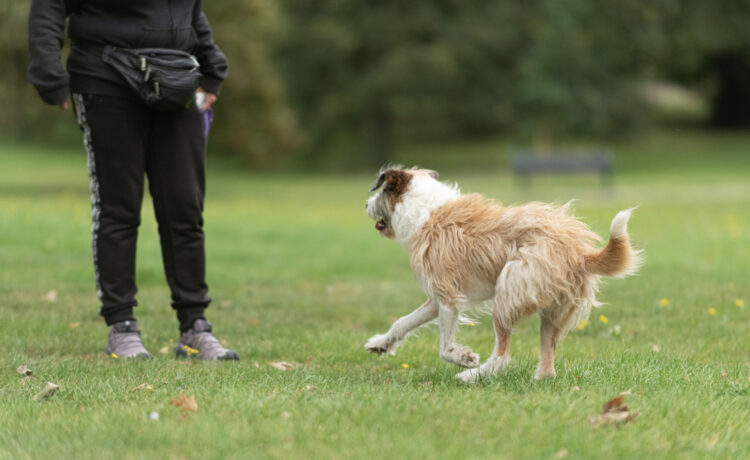Training your dog is an adventure filled with rewards, strengthening the bond between you and your furry buddy. From mastering basic cues to impressing with advanced tricks, we’ll share essential tips to make the journey fun and enriching for both of you.
But while you’re unlocking your dog’s potential, why not give them some added security with cheap dog insurance at least? Life can be unpredictable, and having reliable dog insurance means you can handle vet care without stressing about the bills. It’s like having a safety net for your furry friend’s health.
So, why not check out pet insurance policies today? By signing up, you ensure that every learned cue and mastered trick is backed by the protection they deserve.
In the meantime, let’s dive into some handy tips below to prepare your dog for basic to advanced training. With the right guidance and a little patience, you’ll be amazed at what your furry friend can achieve!
How to prepare your dog for learning basic cues to advanced tricks?
1. Start with simple cues
Begin with fundamental cues like “sit”, “stay”, “go”, “lay down”, and “come.” These form the building blocks for more advanced tricks.
2. Use positive reinforcement
Reward your dog with treats, praise, or toys when they successfully execute a task. Positive reinforcement creates a positive association with learning.
3. Short, regular training sessions
Keep training sessions short and engaging to maintain your dog’s attention and enthusiasm. Regular, brief sessions are more effective than infrequent, lengthy ones.
4. Consistent verbal and hand signals
Use consistent verbal cues and hand signals for each cue. Dogs thrive on consistency, making it easier for them to understand and respond.
5. Gradual progression
Once your dog masters basic cues, gradually introduce more complex tricks—progress at a pace that suits your dog’s learning style.
6. Patience and persistence
Be patient and persistent. Learning takes time, and each dog has their own pace. Consistency and repetition are key elements.
7. Introduce clicker training
Clicker training can enhance precision in teaching advanced tricks by providing an immediate, distinct sound marker for correct behaviour.
8. Break down complex tricks
Deconstruct complex tricks into smaller, manageable steps. Teach each step individually and gradually combine them for the complete trick.
9. Proofing cues
Practice cues in various environments and with different distractions to “proof” them. This helps your dog generalise the cues across different situations.
10. Mix up the training routine
Keep training sessions engaging by incorporating a variety of cues and tricks. This prevents boredom and maintains your dog’s engagement.
11. Engage in interactive play
Use interactive toys or games that involve problem-solving to stimulate your dog’s cognitive abilities. This complements their training.
12. Advanced training classes
Enrol in advanced training classes with a professional dog trainer. These classes provide structured learning environments for both you and your dog.
13. Seek professional guidance
If you encounter challenges, seek guidance from a professional dog trainer. They can provide personalised tips and techniques tailored to your dog’s needs.
14. Maintain a positive attitude
Keep training sessions positive and enjoyable for both you and your dog. Celebrate their achievements and always end on a positive note.
15. Routine health checks
Ensure your dog is in good health. Regular health check-ups contribute to their overall well-being and can identify any health issues that might affect training.
By following these tips, you’ll prepare your dog for basic cues to advanced tricks and build a strong bond through positive, engaging, and effective training sessions.
Join your furry friend on an adventure-filled training experience, while keeping their health in check with dog insurance. You never know when unexpected health problems might pop up, and having cheap dog insurance, at least, can give you peace of mind when it comes to providing necessary medical care.















